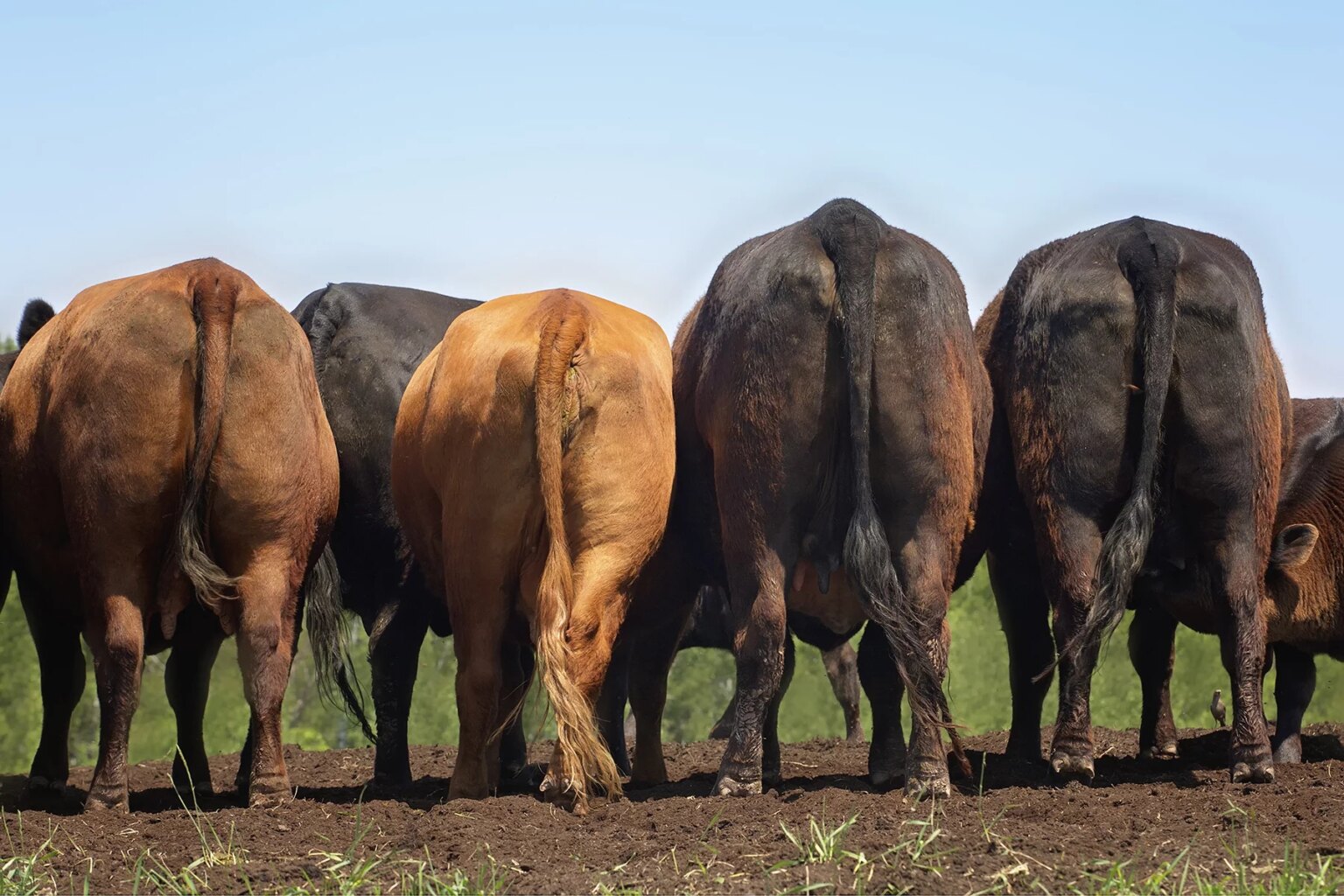Only in the Netherlands can you have a monkey up your sleeve or use the wrong leg to get out of bed. Why do they say ‘unfortunately, peanut butter’ and walk away as if nothing happened? And what does ‘crazy as a door’ even mean?
Read up about a few of the more hilarious sayings and impress your teacher next time you go to language class.
Preply
Immerse yourself in the language of your new country with Preply. This app and website matches learners with online tutors so you can follow live, personalized language classes. With 50 languages to choose from, and tutors all over the world, there’s a course for everyone. Check out Preply to start your language-learning journey today.
Animal-related expressions
Ant fucker
When you bother a Dutch person with endless remarks about the minutest of details, they might call you an ‘ant fucker’ (mierenneuker). It’s the same as the English nitpicker, but slightly more insulting. The expression is likely related to the French enculeur de mouches, meaning ‘fly fucker’.
Interesting fact: in 2005, a judge ruled that people could use the word without getting fined for insulting a police officer.
Chicken skin
When you’re cold or scared, the hairs on your arms will stand up and create little bumps along your skin. In other words, you look like plucked poultry.
In England and Germany, this is known as goose flesh (goose bumps and gänsehaut). Dutch people, on the other hand, get ‘chicken skin’ (kippenvel). This is the same as in French and Spanish, who also have chicken-related idioms (chair de poule and la piel de gallina).
The expression goes way back to the Middle Ages and most likely has to do with the availability of chicken and geese for eating.
To find the dog in the pot
The Dutch value being on time. When you agree to meet them for dinner at six, then you have to show up at six. If you happen to be an hour late, you might ‘find the dog in the pot’ (de hond in de pot vinden).
Dating from the Middle ages, dogs were often allowed to clean out the pots and pans once the people were done with dinner. So if you find a dog in the pot, you know there’s nothing left to eat.
Now the monkey comes out of the sleeve
When something or someone’s true character is revealed, it’s very normal in the Netherlands to say that ‘now the monkey comes out of the sleeve’ (nu komt de aap uit de mouw).
Some linguists argue that this expression originates from artists who had literal monkeys hidden up their sleeves, which they made appear at random moments in time.
Another – more rational – explanation is that the monkey derives from ‘behaving like a monkey’ (i.e., like a brat). In this case, it’s hidden up someone’s sleeve, until the behavior comes out and someone’s true character is revealed.
Sayings related to people or body parts
To use a cart made of legs
Although this expression sounds very gruesome, it actually makes sense (kind of). You just have to take it literally. When you use a ‘cart made of legs’ (de benenwagen), you are traveling using your legs. In other words, you are walking.
It’s not clear where the idiom originates from, but it likely can be traced to the cynical humor of Amsterdam street slang. Synonyms include the car of the common people (de auto van het voetvolk) and vehicle without wheels (voertuig zonder wielen).
The small version of the outer leg
Misfits are called buitenbeentje. Buitenbeen means the outer leg, and –tje makes everything diminutive. So why do Dutch people call someone ‘a small version of the outer leg’?
The reasoning is actually quite interesting. Buitenbeentje derives from buitenbeens, which means to walk crooked or not straight. This could also relate to your life and morals in general. For example, if you had a child out of wedlock, they were buitenbeens.
Over time, the meaning of buitenbeentje changed from a bastard child to ‘someone who doesn’t really fit within the family’ to a misfit.
Joost may know
Sometimes, when you ask a Dutch person a question, they will refer you to Joost and say he’ll probably know (Joost mag het weten!). But then when you ask Joost, he’ll act all irritated and doesn’t give you an answer.
That’s because the Dutch use the expression ‘Joost may know’ to say that they don’t know the answer, and also don’t really care to know. Joost in this case does not refer to any person in particular but to the devil.
In the 18th century, the Chinese-Indonesian population prayed to an evil deity called Dejos, whom they thought would bring them bad luck if they didn’t honor him. The name of the god was often shortened to Joos, which in turn was bastardized to Joost.
To have long toes
When you step on someone’s toes, you’ve insulted someone. But only in the Netherlands will you hear the retort that someone has long toes (lange tenen hebben).
This Dutch expression means that the person is easily offended. Although it’s unclear where it originates from, it is probably related to the English idiom ‘stepping on someone’s toes’ that goes back to the mid-1800s.
The Dutch likely gave it a spin: instead of them offending someone (by stepping on their toes), the person who was insulted had incredibly long toes (making it easier to step on them).
Environment-related idioms
As crazy as a door
You might have heard it before. A Dutch person will laugh and call you ‘as crazy as a door’ (zo gek als een deur), meaning you are as crazy as they come. But why do the Dutch think that doors are insane?
In this expression, the word door actually means fool. The etymology of deur can be traced back to the medieval word dore, which translates to both door and fool. It is related to the English word door and the German word Tür, as well as the Nordic dør, the Greek thúra, and the Russian dveri.
Linguists trace the word back to the Pan Indo-European *dhwer-, meaning door or doorway. The Dutch word dwerg means dwarf and was often used to annotate a Little Person. In the Middle Ages, Little People often worked as fools in courts, hence the correlation between ‘door’ and ‘fool’.
Nowadays, deur doesn’t get used for fool anymore, it only survives in this Dutch expression.
It stands like a pole above the water
The Netherlands has a lot of sayings and idioms related to water and seafaring. One of these is ‘it stands like a pole above the water’ (dat staat als een paal boven water), which means that you are absolutely certain of something.
This metaphor can be taken quite literally: it (the pole) is so visible, everyone who has eyes can see it. It’s unclear how old the expression is, but it likely goes back a few centuries.
To tape someone behind the wallpaper
People can be very irritating and the Dutch have a very inventive way of dealing with that. ‘Taping someone behind the wallpaper’ (iemand achter het behang plakken) means that you find someone so annoying that you’re completely done with them and don’t want to see them for a while.
This expression can be traced back to a 1935 novel “Polletje Piekhaar” by the Dutch writer Willem van Iependaal. This work was a bestseller in its day and everyone had read it. One of the characters says “If she was mine, I’d tape her behind the wallpaper and move home” (As ‘t de mijne was, plakte ‘k ze achter ‘t behang en ging verhuize’).
Over the years, the ‘moving home’ was omitted and that’s how we got the saying we have today.
Using the wrong leg to get out of bed
When someone has a bad mood, they’ve probably ‘used the wrong leg to get out of bed’ (met het verkeerde been uit bed stappen).
The original expression used to be ‘to step out of bed on the left side’ or ‘to use the left leg to get out of bed’. For centuries, everything that was left was evil and bad. This idea goes back to the Bible and the story of the crucifixion. The good thief on Jesus’ right side repented and went to heaven. The bad thief on his left stayed unrepentant and went to hell.
Wrong (verkeerd) was used as a close synonym for left, which is how it ended up replacing the word left.
Food-related sayings
To fall with your nose in the butter
Imagine starting a new job, and receiving a bonus in the first week or month. A Dutch person might tell you you’ve just ‘fallen with your nose in the butter’ (met je neus in de boter vallen – although a better translation would be ‘landing with your nose in the butter’).
This Dutch expression has been in use since at least the 17th century and means that you’re receiving an unexpected benefit. The original saying did not refer to butter, but to fat (vet), which was practically the same.
Back then, people weren’t allowed to eat meat or dairy products during Lent. However, those with enough money could buy a letter of indulgence from the church, which basically allowed them to evade the rule.
These letters of indulgence were mockingly called ‘letters of butter’ (boterbrieven). Those who held them were said to have landed with their noses in the butter.
A cup of solace
When a Dutch person asks if you’d like a ‘cup of solace’ (bakkie troost or a bakkie pleur), they’re offering you a cup of coffee.
Both Rotterdam and The Hague claim ownership of this idiom, so the exact origin is unknown. It could be from the harbor of Rotterdam where the laborers would hurl everything, including their cups of coffee (pleuren meaning to hurl).
Another explanation could be that the coffee offers you a little bit of solace after a long day or a bad moment. The idiom is then related to the French word pleurer (meaning to cry), which in turn would explain the bakkie troost (i.e., a cup of solace).
A third version is that the word pleur is related to oppleuren (i.e., to sod off). People are offered coffee at the end of their dinner, as a subtle way to tell them to leave. This last explanation is less likely, but who knows?
Unfortunately, peanut butter!
A Dutch person will sometimes shrug their shoulders and tell you helaas, pindakaas!. And if they really feel jovial, they’ll translate it to ‘unfortunately, peanut butter!’ or dommage, frommage! in French.
This idiom dates back to the 1980s and is used as a blasé way to say ‘that’s too bad’. It’s disputed who used it first, but what is known is that it was used as slang by teenagers. Pindakaas was merely chosen because it is a good rhyming word for helaas.
It is possibly related to the Yiddish rhyming slang, such as fancy-schmancy, but that is not certain.
Yummy chicken
When your body is in top condition and you feel great, you feel (like a) ‘yummy chicken’ (kiplekker). This Dutch expression originates from the 19th century, and is often associated with ‘feeling as great as chicken is delicious’.
Another explanation for the saying is that it was badly translated from Indonesian ayam senang. Ayam means chicken, and senang can mean both easy and pleasant or at ease. Chicken is translated to kip and senang means lekker or easy. In that sense, your life is as pleasant as that of a chicken.
Other expressions in Dutch
A little one-cent whistle
Whereas the English say ‘easy peasy, lemon squeezy’ or ‘as easy as pie’, the Dutch use the expression ‘it’s a little one-cent whistle’ (een fluitje van een cent).
The saying should be taken quite literally: a little whistle that can be bought for one cent. These whistles were cheap and simple, hence the connotation ‘as easy as a one-cent whistle’.
To be the cigar
When a Dutch person is unlucky or in trouble, they ‘are the cigar’ (de sigaar zijn). They can also be a banana (pisang), a sjaak, screwed (de pineut), a penis (lul), or a spool (klos).
At the start of the 20th century, the cigar, sjaak, and pisang were all slang words for the penis. The spool (or kloot) was likely a slang word for a testicle.
Although the exact origin of the saying is unknown, it could possibly be a combination of Bargoens and slang that was used by soldiers. Bargoens is a form of language used by criminals, traveling salesmen, and tramps. The soldiers used ‘the penis’ to indicate the person who received a bad assignment.
Oh, on that bike!
The Dutch love their bikes, everyone knows that. But why do they exclaim ‘oh, on that bike!’ (oh, op die fiets!) when you’re explaining something?
‘Oh, on that bike’ means ‘oh, like so’. This idiom is relatively new, dating from the 1980s. It’s suspected to be Rotterdam street slang, but that’s all that is known about this saying.
Not having shot always means a miss
If you try something and fail, that’s unfortunate. But if you never try something at all, it’s even worse. In the Netherlands, missed opportunities are described as ‘not having shot always means a miss’ (niet geschoten is altijd mis).
This Dutch expression dates from the 20th century and alludes to the hunt. Why it came into being is unknown.







